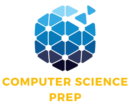Looking for programs in a specific city? Check out our lists of Computer Science in Salt Lake City, West Valley City, West Jordan, and Provo.
Becoming a computer scientist in Utah is an exciting journey with multiple rewarding steps.
- Educational Requirements: Focus on high school preparation, strong undergraduate programs, and potential graduate studies in Utah.
- Skill Development: Build important skills in programming, problem-solving, and analytical thinking through certifications and workshops.
- Career Opportunities: Gain practical experience through internships and networking in Utah’s thriving tech community.
Follow this guide to become a computer scientist in Utah and unlock your tech career potential.
- How to Become a Computer Scientist in Utah
- Understanding the Role of a Computer Scientist
- Educational Requirements and Pathways
- Building Essential Skills
- Gaining Practical Experience
- Networking and Professional Development
- Finding Job Opportunities
- Advancing Your Career
- Looking for Computer Scientist Information On States Bordering Utah?
- Conclusion
How to Become a Computer Scientist in Utah
Content: Discover the essential steps and considerations for becoming a computer scientist in Utah, including educational requirements, skills development, and career opportunities.
To become a computer scientist in Utah, focus on obtaining the right education, developing essential skills, gaining practical experience, and networking. With strong state universities and thriving tech communities, the region offers a wealth of opportunities for learning and career advancement in this dynamic field.
Understanding the Role of a Computer Scientist
What Does a Computer Scientist Do?
Computer scientists use their expertise in both computer science and mathematics to develop new technologies and solve complex problems. Typical responsibilities include:
- Developing Software Applications: From mobile apps to enterprise systems.
- Conducting Research: Exploring new computational theories and technologies.
- Creating Algorithms: Enhancing artificial intelligence capabilities.
- Improving Computing Systems: Ensuring efficiency and security.
Work Environments
Computer scientists work in diverse environments such as:
- Tech Companies: Innovate and develop new products.
- Research Institutions: Focus on advancing theoretical knowledge.
- Government Agencies: Develop solutions for national security and public services.
- Educational Organizations: Teach and mentor the next generation of scientists.
Impact Across Industries
Computer scientists drive innovation in various sectors, including:
- Healthcare: Developing software for medical imaging and patient management.
- Finance: Enhancing algorithms for trading and fraud detection.
- Entertainment: Creating robust systems for gaming and content streaming.
Choosing a career as a computer scientist allows you to make significant contributions to technological advancement across multiple industries.
Educational Requirements and Pathways
High School Preparation
Begin by building a strong foundation in high school. Focus on subjects like:
- Mathematics: Calculus and Algebra.
- Science: Physics and Chemistry.
- Computer Science: Programming and IT basics.
Undergraduate Programs
Pursue a Bachelor of Science (B.S.) in Computer Science or a related field. In Utah, you can find robust programs at institutions such as:
- University of Utah: Known for its School of Computing, offering specializations and research opportunities.
- Brigham Young University (BYU): Provides comprehensive programs with internship opportunities.
- Utah Valley University: Tailored programs designed for the evolving tech industry.
These universities offer certifications, state-of-the-art labs, and active student communities, providing a rich, learning environment.
Graduate Studies
For those seeking advanced expertise, consider pursuing a Master’s or Ph.D. in Computer Science. Graduate programs often focus on:
- Artificial Intelligence: Developing intelligent systems and applications.
- Cybersecurity: Addressing vulnerabilities and protecting data.
- Data Science: Analyzing complex datasets to gain insights.
Such programs usually include substantial research components, opening doors to academic, research, and leadership roles.
Building Essential Skills
Technical Skills
Successful computer scientists need a blend of technical skills:
- Programming Languages: Proficiency in Python, Java, and C++.
- Development Tools: Familiarity with Git and IDEs.
- Software Design Principles: Understanding data structures and algorithms.
These skills are foundational and can be developed through coursework, online learning platforms, and practical projects.
Certifications and Courses
To enhance your technical know-how, pursue certifications and courses:
- CompTIA A+: Fundamentals of computer technology.
- Google IT Support Professional Certificate: Skills in IT support.
- Certified Information Systems Security Professional (CISSP): Advanced cybersecurity knowledge.
Platforms like Coursera, edX, and Udemy offer courses ranging from programming to specialized areas like machine learning and cloud computing.
Practical Experience
In addition to coursework, practical experience is crucial:
- Internships: Provide real-world exposure.
- Coding Bootcamps: Intensive training programs.
- Hackathons: Competitions to solve problems and develop projects.
Organizations in Utah, such as DevMountain and CodeChangers, offer hands-on experience through workshops and training programs.
By gaining proficiency in these skills, you’ll be well-equipped to tackle complex problems and innovate within the field of computer science.
In the next section, we’ll explore how to gain practical experience in computer science, which is essential for standing out in the job market and advancing your career.
Gaining Practical Experience
Gaining practical experience is invaluable for aspiring computer scientists in Utah. It sets you apart in the job market and provides hands-on opportunities to apply theoretical knowledge.
Internships
Internships are an excellent way to gain real-world exposure.
- Why Internships Matter: They provide industry experience, help build professional networks, and often lead to job offers.
Top Companies Offering Internships in Utah
Utah is home to numerous tech firms that offer robust internship programs. Consider applying to:
- Adobe: Known for innovative projects and a collaborative work culture.
- Qualtrics: Offers hands-on experience with customer experience management software.
- Pluralsight: Provides a dynamic environment focusing on technology skills development.
Research Projects
Getting involved in research projects is equally important, especially for those interested in academia or advanced specializations.
University Research Opportunities in Utah
Universities in Utah offer numerous research opportunities:
- University of Utah’s UROP: This undergraduate research opportunities program allows you to engage in significant research while earning academic credits.
- BYU’s ORCA: Office of Research and Creative Activities funds undergraduate students to work on research projects under faculty guidance.
Coding Competitions and Hackathons
Participating in coding competitions can hone your problem-solving skills and enhance your portfolio.
Notable Competitions and Hackathons
Utah hosts a variety of coding competitions and hackathons:
- ACM ICPC: The Association for Computing Machinery International Collegiate Programming Contest is a prestigious event sharpening problem-solving capabilities.
- Local Hackathons: Events hosted by Luminary Labs and DevMountain allow for practical application of coding skills in real-time environments.
Freelance and Open-Source Projects
Taking on freelance projects or contributing to open-source initiatives can provide practical experience and increase your visibility to potential employers.
- Upwork and Freelancer: Platforms to find freelance projects.
- GitHub: A valuable resource to collaborate on open-source projects and showcase your coding skills.
Networking and Professional Development
Networking is essential for career growth in computer science. Building meaningful connections within the tech community can open doors to numerous opportunities.
Joining Professional Organizations
Professional organizations offer resources for learning and networking.
- Utah Technology Council (UTC): Connect with local tech professionals and attend industry seminars and workshops.
- ACM and IEEE: Become a member of these leading technical societies to access valuable publications, conferences, and networks.
Attending Meetups and Conferences
Meetups and conferences are great ways to meet like-minded professionals and stay updated on industry trends.
Popular Events in Utah
Utah hosts several annual events tailored for tech enthusiasts:
- Silicon Slopes Tech Summit: A premier event bringing together innovators and leaders in tech.
- UtahJS: A community-driven event focusing on JavaScript development and networking.
Online Forums and Communities
Participating in online forums broadens your professional network and knowledge base.
- Stack Overflow: A go-to platform for coding issues and discussions.
- Reddit’s r/compsci: Engage in conversations with a global community of computer scientists.
- LinkedIn Groups: Join relevant groups to connect with professionals and share industry insights.
Specialized Tech Communities
Joining niche communities can offer additional support and networking opportunities, especially for underrepresented groups in tech.
- Women Who Code: Provides resources and networking opportunities for women in technology.
- Tech Ladies: A community supporting women in tech.
- Blacks In Technology: Offers resources, mentorship, and networking for Black technologists.
Finding Job Opportunities
Effective job searching strategies are crucial for landing your first role in computer science.
Targeting Tech Hubs
Utah’s “Silicon Slopes” region is a thriving tech hub.
Key Cities to Explore
- Lehi: Home to numerous tech companies and startups.
- Provo: Offers a vibrant tech community supported by BYU.
- Salt Lake City: The state capital with a growing tech scene.
Leveraging University Career Services
University career centers provide essential resources for job hunting.
Services Offered
- Job Listings: Access to exclusive job postings.
- Resume Reviews: Professional guidance to perfect your resume.
- Networking Events: Opportunities to connect with industry professionals and recruiters.
Using Job Boards
Explore various job boards for opportunities in Utah.
Recommended Job Boards
- Indeed, LinkedIn, and Glassdoor: General job listings.
- AngelList: Positions in startups.
- GitHub Jobs: Tech-focused opportunities.
Mentorship and Alumni Networks
Connecting with mentors and alumni can provide invaluable insights and job leads.
- University Alumni Networks: Reach out to alumni working in your field.
- Professional Mentors: Seek guidance from seasoned professionals in the industry.
Advancing Your Career
Once you’ve secured a position, continuous learning and skill enhancement are vital for career advancement.
Continuing Education
Invest in continuous education to stay competitive.
Advanced Certifications
- AWS Certified Solutions Architect: Specialization in cloud solutions.
- Microsoft Certified Azure Solutions Architect: Focused on Microsoft Azure technologies.
Specialized Fields
Exploring specialized fields within computer science opens new career opportunities.
In-Demand Specializations
- Cybersecurity: Protecting data and systems from threats.
- Cloud Computing: Managing and deploying cloud infrastructures.
- Artificial Intelligence: Developing intelligent algorithms and systems.
Leadership Roles
Developing soft skills is crucial for leadership roles.
Key Skills for Leadership
- Communication: Clear and effective interaction with your team.
- Project Management: Efficiently manage projects and meet deadlines.
- Team Management: Leading and inspiring your team to achieve goals.
Transitioning to Related Tech Careers
Leverage your computer science skills to transition to other tech-related careers.
Potential Career Paths
- Data Analysis: Interpreting complex datasets.
- Systems Architecture: Designing and implementing computing solutions.
- IT Consulting: Providing expert advice on technology strategies.
Looking for Computer Scientist Information On States Bordering Utah?
In addition to Utah, we suggest looking for schools in nearby states.
- How to Become A Computer Scientist in Idaho
- How to Become A Computer Scientist in Wyoming
- How to Become A Computer Scientist in Colorado
- How to Become A Computer Scientist in Nevada
- How to Become A Computer Scientist in Arizona
Conclusion
To become a computer scientist in Utah, you need a solid educational foundation, continuous skills development, practical experience, and an extensive professional network. By following this guide and utilizing the resources mentioned, you can embark on a rewarding journey in the rapidly evolving field of computer science, equipped with the skills and knowledge needed to excel in various industries.

